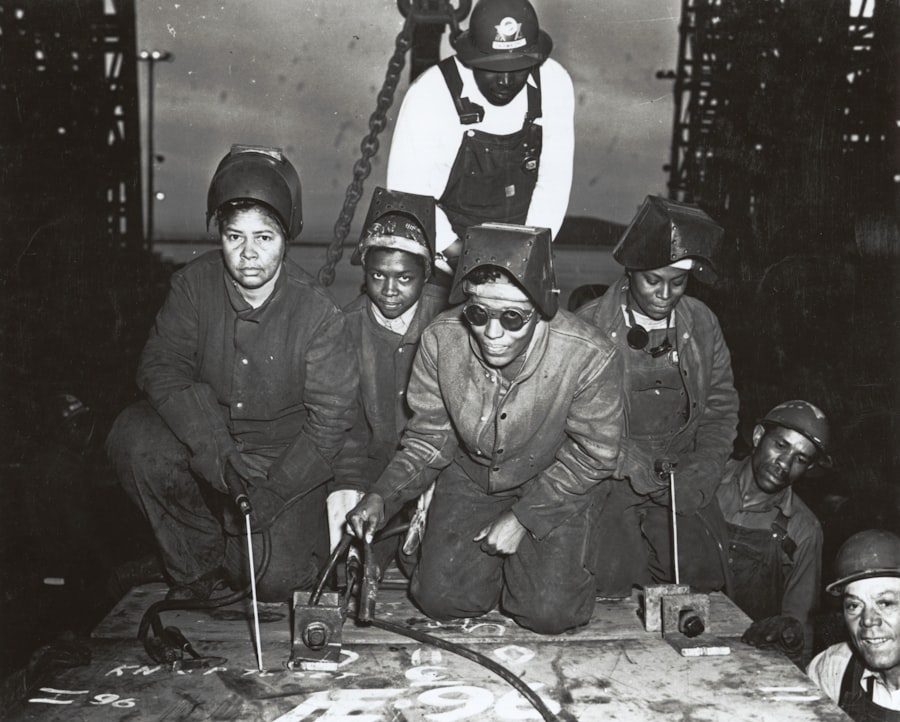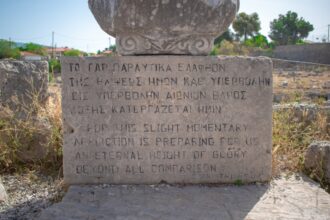Operation Pastorius emerged during a tumultuous period in history, as World War II raged across Europe and the Pacific. The operation was conceived by the German military high command in 1942, with the intent of sabotaging key American industries and infrastructure. The decision to launch such an operation stemmed from a desire to disrupt the United States’ war efforts and to instill fear among the American populace.
As the U.S. entered the war following the attack on Pearl Harbor, Germany recognized the need to counteract the growing military might of its adversary. Thus, Operation Pastorius was born out of a strategic necessity to weaken the enemy from within.
The name “Pastorius” was derived from the 18th-century German-American educator Francis Daniel Pastorius, who was known for his contributions to the establishment of Germantown, Pennsylvania. This choice of name symbolized a connection to America, as the operation aimed to exploit the very fabric of American society. The plan involved sending a group of German agents to the United States, where they would carry out acts of sabotage against critical infrastructure, including factories, railroads, and power plants.
The overarching goal was to create chaos and undermine public confidence in the government’s ability to protect its citizens.
Key Takeaways
- Operation Pastorius was a German espionage operation during World War II aimed at infiltrating the United States.
- German agents were carefully selected and trained for their mission to gather intelligence and carry out sabotage in the US.
- The German spies successfully infiltrated the United States by landing on its shores from submarines.
- The mission objectives of Operation Pastorius included disrupting American industrial production and infrastructure.
- The arrest and trial of the German spies led to strained US-German relations and had a lasting impact on US intelligence operations.
The Selection and Training of German Agents
The selection process for the agents involved in Operation Pastorius was meticulous and strategic. The German military sought individuals who not only possessed the necessary skills for espionage but also had a deep understanding of American culture and language. This requirement was crucial, as the agents needed to blend seamlessly into American society to avoid detection.
Ultimately, eight men were chosen for this perilous mission, each with unique backgrounds that would aid in their covert operations. Once selected, these agents underwent rigorous training designed to prepare them for their tasks in the United States. This training included instruction in sabotage techniques, survival skills, and methods for evading capture.
Additionally, they were educated about American customs and social norms to ensure they could navigate their new environment without raising suspicion. The German military invested significant resources into this training, believing that a well-prepared team could effectively execute their mission and achieve their objectives.
The Infiltration of the United States

In June 1942, the agents embarked on their journey across the Atlantic Ocean, arriving on the shores of Long Island, New York. Their infiltration was facilitated by a U-boat that transported them to American waters, where they were dropped off under the cover of darkness. The agents were tasked with establishing themselves in various locations across the country, with plans to coordinate their sabotage efforts from different points.
However, their arrival was fraught with challenges, as they faced not only the vastness of America but also the complexities of executing their mission without drawing attention. Upon landing, the agents quickly dispersed into their assigned areas. They attempted to adopt American identities and blend into everyday life while simultaneously planning their acts of sabotage.
However, their initial attempts at integration were met with difficulties. The agents struggled with cultural nuances and often found themselves at odds with local customs. Despite these challenges, they began to gather intelligence on potential targets, setting the stage for their planned attacks.
The Mission Objectives of Operation Pastorius
The primary mission objectives of Operation Pastorius were clear: to disrupt American industry and instill fear among the populace. The agents were instructed to target key facilities that were vital to the war effort, including factories producing munitions and other military supplies. By sabotaging these facilities, the German military hoped to slow down production and create a sense of vulnerability within American society.
The overarching goal was to demonstrate that even on American soil, the enemy could strike at will. In addition to physical sabotage, there was also an intention to create psychological warfare through acts of terror. The agents were encouraged to carry out their missions in a manner that would generate panic and uncertainty among civilians.
By creating a climate of fear, Germany aimed to undermine public confidence in the U.S. government’s ability to protect its citizens from external threats. This dual approach—both physical and psychological—was designed to maximize the impact of their operations.
The Arrest and Trial of the German Spies
Despite their initial successes in infiltrating American society, Operation Pastorius quickly unraveled due to a series of missteps by the agents. One of the key turning points occurred when one agent, George John Dasch, became disillusioned with the mission and decided to turn himself in to U.S. authorities. His decision led to a cascade of events that ultimately resulted in the arrest of all eight agents. Dasch provided crucial information about their plans and identities, which allowed law enforcement officials to apprehend his fellow operatives before they could execute their sabotage missions. The subsequent trial of the German spies was a significant event in American history. President Franklin D. Roosevelt authorized military tribunals for the captured agents, citing national security concerns.
Ultimately, six of the eight agents were found guilty and sentenced to death, while two others received prison sentences due to their cooperation with authorities.
The Impact of Operation Pastorius on US-German Relations

Operation Pastorius had far-reaching implications for U.S.-German relations during World War
The operation highlighted the lengths to which Germany was willing to go in order to undermine its enemies and demonstrated a clear threat to American security. In response to these events, U.S. authorities intensified their counterintelligence efforts and heightened security measures across the nation.
This increased vigilance reflected a growing awareness of espionage activities and foreign threats within American borders.
Moreover, Operation Pastorius contributed to a broader narrative about Germany’s aggressive tactics during the war. It reinforced negative perceptions of Germany among Americans and fueled anti-German sentiment during a time when national unity was paramount. As a result, U.S.-German relations deteriorated further as propaganda efforts painted Germany as a nation willing to resort to treachery and deceit in pursuit of its goals.
The Legacy of Operation Pastorius in US Intelligence
The legacy of Operation Pastorius extends beyond its immediate impact on wartime events; it also shaped future practices within U.S. intelligence agencies. The operation underscored the importance of vigilance against espionage and highlighted vulnerabilities within American society that could be exploited by foreign agents.
In response, U.S. intelligence agencies began implementing more robust counterintelligence measures aimed at detecting and thwarting similar operations in the future. Additionally, Operation Pastorius served as a case study for intelligence professionals regarding the complexities of espionage operations.
It illustrated how even well-trained agents could falter under pressure or become disillusioned with their missions. This understanding prompted intelligence agencies to refine their recruitment processes and training programs for operatives in subsequent years.
The Role of the FBI in Uncovering the German Spy Ring
The Federal Bureau of Investigation (FBI) played a pivotal role in uncovering Operation Pastorius and apprehending its operatives. Following Dasch’s confession, FBI agents swiftly mobilized to investigate leads and gather evidence against the remaining spies. Their efforts involved extensive surveillance and coordination with other law enforcement agencies to ensure that all individuals associated with the operation were captured before they could carry out any sabotage activities.
The FBI’s success in dismantling this spy ring not only showcased its capabilities but also solidified its reputation as a key player in national security matters during World War
The Espionage Techniques Used by the German Agents
The German agents involved in Operation Pastorius employed various espionage techniques that reflected both traditional methods and innovative approaches tailored for their specific mission objectives. One notable technique was reconnaissance; agents conducted thorough surveillance on potential targets before executing any plans for sabotage. This careful planning allowed them to identify vulnerabilities within facilities and determine optimal times for carrying out attacks.
Additionally, the agents utilized deception as a means of blending into American society. They adopted false identities and created backstories that would help them avoid suspicion while gathering intelligence on critical infrastructure. However, despite these efforts at subterfuge, their lack of familiarity with American culture ultimately hindered their effectiveness.
The Aftermath of Operation Pastorius for the German Government
In the aftermath of Operation Pastorius, the German government faced significant repercussions both domestically and internationally.
As news of the arrests spread, it became evident that Germany’s attempts at subversion had been thwarted by vigilant American authorities.
Moreover, Operation Pastorius contributed to an atmosphere of distrust between Germany and its allies during World War
Comparisons to Other Espionage Operations in US History
When examining Operation Pastorius within the broader context of U.S. history, it becomes apparent that it shares similarities with other notable espionage operations throughout time. For instance, during the Cold War era, both Soviet and American intelligence agencies engaged in extensive espionage activities aimed at undermining each other’s interests.
Like Operation Pastorius, these operations often involved intricate planning and execution but were frequently met with counterintelligence efforts that thwarted their objectives. Furthermore, comparisons can be drawn between Operation Pastorius and more recent espionage cases involving cyber warfare or corporate espionage tactics employed by foreign entities against U.S. interests today.
In each instance, there exists an ongoing struggle between nations seeking strategic advantages through covert means while simultaneously facing heightened scrutiny from intelligence agencies dedicated to protecting national security. In conclusion, Operation Pastorius serves as a significant chapter in both World War II history and U.S.-German relations. Its origins reflect strategic military thinking during wartime; its execution highlights both human error and cultural challenges faced by spies; its aftermath underscores lessons learned about counterintelligence practices that continue to resonate today.
Operation Pastorius was a failed German espionage mission during World War II, where eight agents were sent to the United States to sabotage key economic targets. These agents, who were trained in Germany, landed on American shores in 1942 but were quickly apprehended by the FBI, thanks to the defection of one of their own. For a more detailed exploration of the Operation Pastorius agents and their mission, you can read a related article on the topic by visiting this page. This article delves into the intricacies of the operation, the backgrounds of the agents involved, and the impact their capture had on wartime espionage activities.
WATCH THIS! 😱The Nazi Trial America Never Wanted You To See 😱
FAQs
What was Operation Pastorius?
Operation Pastorius was a failed German intelligence plan for sabotage inside the United States during World War II. The operation was named after Franz Daniel Pastorius, the leader of the first organized settlement of Germans in America.
Who were the Operation Pastorius agents?
The Operation Pastorius agents were eight German men who were recruited by the Abwehr (German military intelligence) to carry out acts of sabotage in the United States. Their names were George John Dasch, Ernst Peter Burger, Herbert Haupt, Heinrich Heinck, Richard Quirin, Edward Kerling, Hermann Neubauer, and Werner Thiel.
What were the objectives of the Operation Pastorius agents?
The Operation Pastorius agents were tasked with carrying out acts of sabotage in the United States, including targeting infrastructure such as power plants, bridges, and railroads. Their goal was to disrupt the American war effort during World War II.
What happened to the Operation Pastorius agents?
The Operation Pastorius agents were captured by the FBI shortly after landing in the United States. They were tried by a military tribunal and six of the eight agents were executed by electric chair in 1942. The remaining two agents, George John Dasch and Ernst Peter Burger, received lengthy prison sentences but were later deported to Germany after the war.




